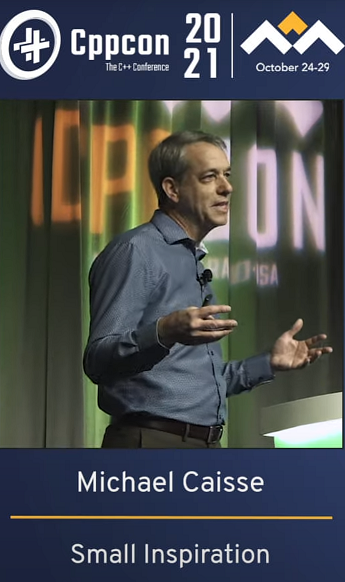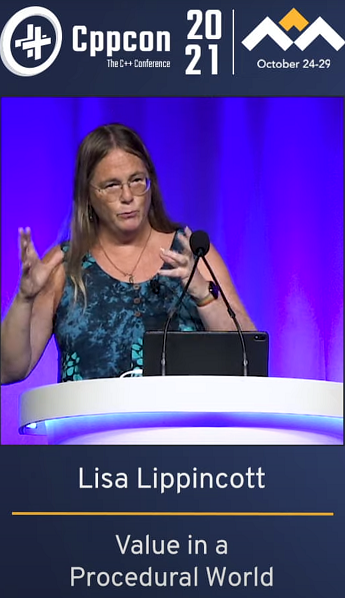Tripreport: virtual CppCon 2021--Jens Weller
Another report!
Tripreport: virtual CppCon 2021
by Jens Weller
From the article:
I attended this weeks virtual CppCon partially, as I'm also very busy with my upcoming conferences: Meeting Embedded & Meeting C++ 2021. Still I had a lot of fun. Thanks to Jon Kalb, the volunteers, speakers and all the attendees who made CppCon 2021 possible!

 The fourth keynote from CppCon 2021 is now publicly available via JetBrains, our video sponsor:
The fourth keynote from CppCon 2021 is now publicly available via JetBrains, our video sponsor: The third keynote from CppCon 2021 is now publicly available via JetBrains, our video sponsor:
The third keynote from CppCon 2021 is now publicly available via JetBrains, our video sponsor: